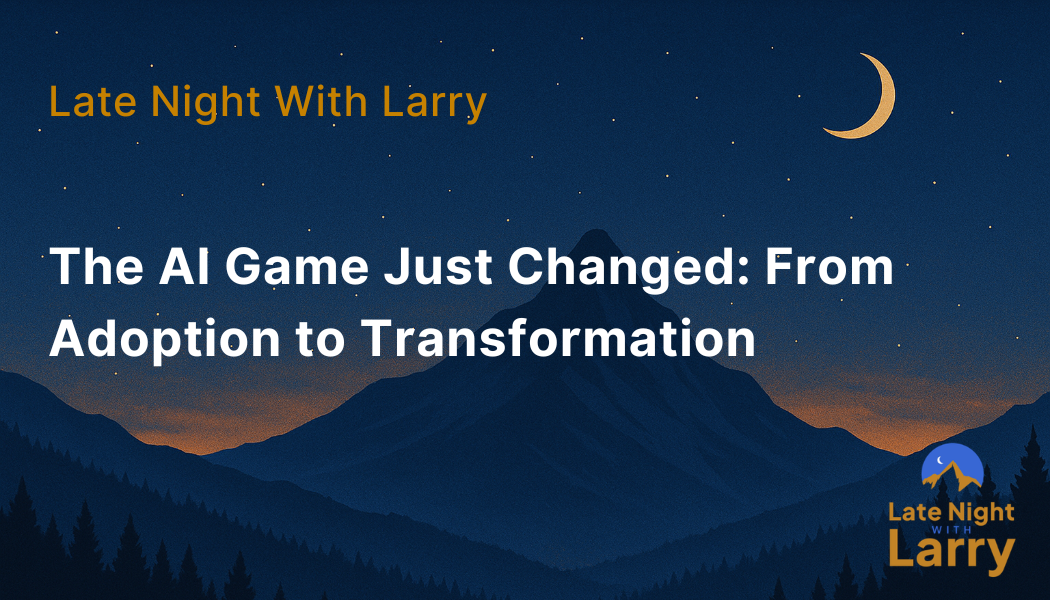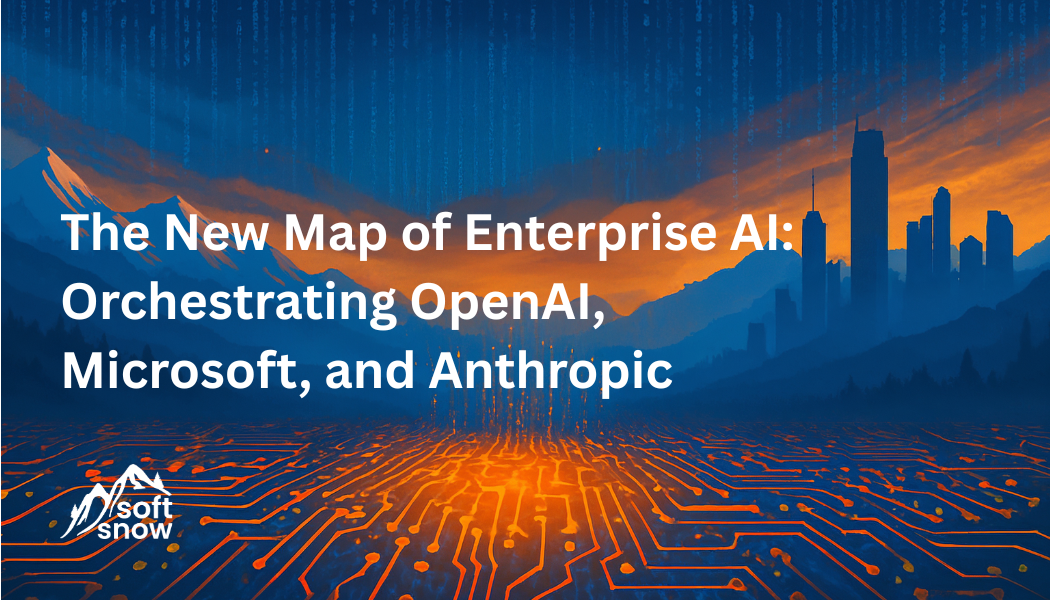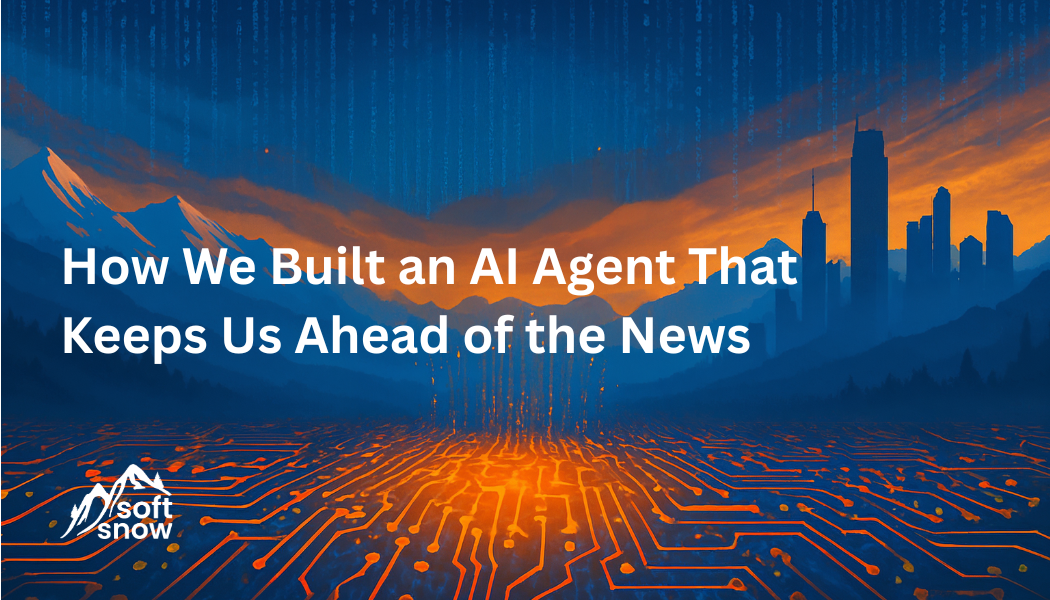.png)
This week’s developments focus on making sophisticated AI capabilities more accessible, efficient, and immediately valuable for users across the spectrum.
________________________
ChatGPT Study Reveals What We've Known All Along: AI Succeeds When It's Human-Centered
OpenAI has released the first comprehensive study examining how people actually use ChatGPT in everyday life, analyzing 1.5 million conversations from consumer accounts. The research, conducted by OpenAI's Economic Research team and Harvard economist David Deming, reveals significant shifts in usage patterns and demographics.
Key findings show that non-work-related ChatGPT usage increased from 53% to 73% between June 2024 and June 2025, indicating the technology is becoming integrated into multiple aspects of daily life. Three-quarters of conversations fall into three main categories: practical guidance (the most common), information seeking, and writing tasks.
Usage patterns differ between work and personal contexts. At work, writing activities account for 40% of messages, with two-thirds focused on editing, critiquing, and translating existing text rather than creating from scratch. Personal usage leans heavily toward practical guidance, including tutoring, how-to advice, and creative ideation.
ChatGPT's user base has expanded to 10% of the world's adult population, with demographics becoming more universal. The gender gap has narrowed significantly, and adoption in low- and middle-income countries is growing four times faster than in the highest-income countries. Rather than replacing workers, the study suggests ChatGPT primarily enhances judgment and productivity, particularly in knowledge-intensive jobs, positioning it more as an advisor than a task-replacement tool.
SoftSnow Take:
This study highlights a reality that is echoed across industries: AI adoption is no longer just about work; it’s becoming an integral part of everyday life. ChatGPT’s most common uses - guidance, information, and writing - are reminders that people value AI not just as a task engine, but as a thinking partner. The rise of “Asking” shows a shift in expectations: AI is being trusted for advice, not just output.
For enterprises, the lesson is clear. When employees turn to AI to edit, translate, or refine ideas, it’s not about replacement; it’s about amplification. This aligns with SoftSnow’s perspective that the future is human + AI collaboration, where technology enhances judgment and frees people to focus on higher-value contributions.
As adoption expands globally and across demographics, leaders must prepare for a workforce already fluent in these tools. The opportunity isn’t just to deploy AI, but to channel this momentum into scalable, responsible transformation.
________________________
Google's AP2: The Infrastructure Play That Will Define AI Commerce
Google has launched the Agent Payments Protocol (AP2), an open-source standard allowing AI agents to complete purchases autonomously with 60+ major partners, including American Express, Mastercard, PayPal, Salesforce, and ServiceNow. The protocol addresses three critical challenges: authorization (proving human permission), authenticity (verifying legitimate agent actions), and accountability (handling fraudulent transactions).
AP2 uses "Mandates", cryptographically-signed digital contracts that serve as verifiable proof of user instructions. The system supports two scenarios: real-time purchases where humans approve transactions, and delegated tasks where agents execute pre-authorized conditions ( like buying concert tickets when prices drop).
Built as an extension of Google's Agent2Agent initiative and Anthropic's Model Context Protocol, AP2 supports diverse payment methods including credit cards, stablecoins, and bank transfers. The A2A x402 extension, developed with Coinbase and MetaMask, enables crypto-based agent transactions.
While no consumer-facing implementations exist yet, the protocol targets both individual and enterprise use cases. Business applications include autonomous procurement, dynamic software licensing, and marketplace interactions. The framework addresses current limitations where AI agents can research and compare products, but require manual approval for purchases.
Google has published full specifications on GitHub, encouraging developer participation. The protocol aims to prevent ecosystem fragmentation while establishing industry-standard foundations for AI-driven commerce as agentic payments evolve beyond experimental phases.
SoftSnow Take:
Google’s AP2 initiative is a milestone for the future of agentic commerce. By creating a common framework for authorization and accountability, AP2 moves agent-led payments from risky experiments toward trusted, auditable business processes. For enterprises, this could mean AI agents not only finding suppliers or managing subscriptions but also executing transactions with traceable proof of user intent.
The importance of a shared standard can’t be overstated. Fragmented payment flows are a major barrier to scaling AI agents in enterprise environments. With AP2, companies can begin planning for a future where agents manage procurement, scale licenses dynamically, and coordinate complex supply chains, securely and transparently.
At SoftSnow, we see this as a wake-up call for leaders: the infrastructure for agent-driven transactions is being built now. Enterprises that start aligning with these standards early will be positioned to capture efficiencies and trust advantages as agentic commerce becomes reality.
________________________
Claude's Memory Feature: Progress Toward Truly Collaborative AI
Anthropic has launched automatic memory functionality for Claude AI, allowing the chatbot to remember and incorporate details from previous conversations without user prompting. The feature is currently available only to Team and Enterprise users, enabling Claude to automatically reference user preferences, project context, and priorities in responses.
This builds on last month's manual memory feature for paid users, where Claude could remember past chats when specifically asked. The automatic memory extends to Anthropic's Projects feature, which helps Pro and Teams users generate diagrams, website designs, and graphics based on uploaded files.
The memory system appears optimized for workplace applications, focusing on details like team processes and client needs. Users maintain full control through settings menus where they can view, edit, and adjust what Claude remembers or ignores. Anthropic emphasizes that the feature is "fully optional."
The launch follows similar implementations by OpenAI and Google for their respective chatbots. However, a New York Times report linked ChatGPT's memory rollout to increased reports of "delusional" AI conversations, highlighting potential risks.
Alongside memory features, Anthropic introduced incognito chats for all users—conversations Claude won't save or reference in future interactions. This mirrors Google's Private Chats feature for Gemini, launched in August, addressing privacy concerns around persistent AI memory.
SoftSnow Take:
Anthropic’s rollout of automatic memory for Claude highlights the next stage of enterprise AI: moving from single interactions to continuous, context-aware collaboration. Instead of starting from scratch in every conversation, Claude can now remember client needs, team processes, and project context, making it far more effective as a long-term partner for work.
For enterprises, this matters because context is everything. Tools that “forget” waste time and create friction, while tools that remember can accelerate workflows and reduce redundancy. But memory also raises questions of governance, transparency, and control. Anthropic’s decision to make memory optional and editable is a smart move; trust will come from giving users visibility into how AI uses their data.
At SoftSnow, we see this as a signal that AI agents are maturing into durable teammates. The challenge for leaders is to capture the productivity benefits while putting the right guardrails in place.
________________________
These rapid developments demonstrate both the urgency and opportunity of this moment. The good news? Meaningful AI implementation doesn't require enterprise-scale resources or massive infrastructure investments.
The most successful AI transformations aren't about chasing every new capability; they're about identifying where technology can solve real business problems and empower your existing teams. Whether you're building infrastructure, creating new user experiences, or seeking competitive advantages, the key is approaching AI with purpose and practicality.
At SoftSnow, we understand that successful AI adoption isn't just about acquiring technology: it's about thoughtful integration that enhances human potential rather than replacing it, allowing teams to work smarter and achieve more while staying true to core business objectives. Contact us today to learn more.





